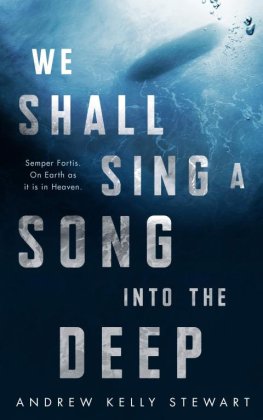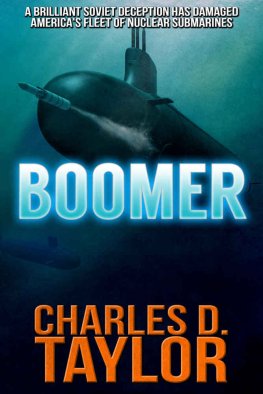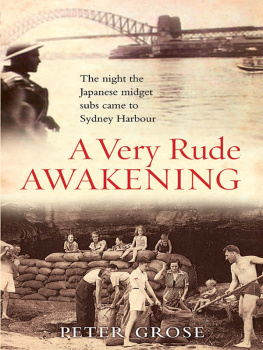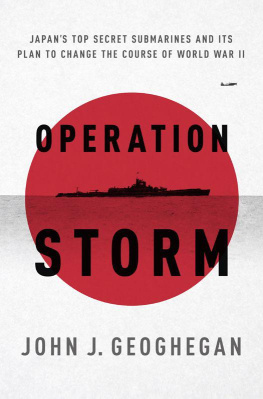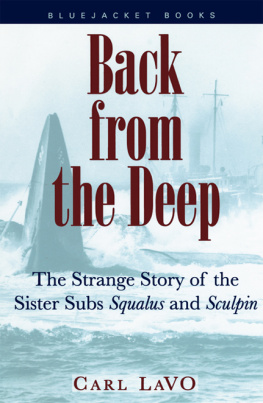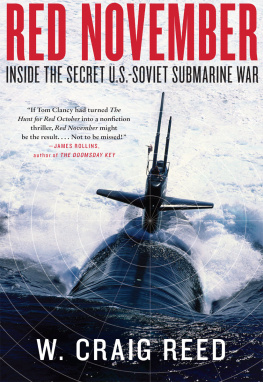Birksted-Breen Noah - Subs, Subs, Subs ... Sea Stories: Life on a submarine
Here you can read online Birksted-Breen Noah - Subs, Subs, Subs ... Sea Stories: Life on a submarine full text of the book (entire story) in english for free. Download pdf and epub, get meaning, cover and reviews about this ebook. City: London, year: 2015, publisher: Glas, genre: Home and family. Description of the work, (preface) as well as reviews are available. Best literature library LitArk.com created for fans of good reading and offers a wide selection of genres:
Romance novel
Science fiction
Adventure
Detective
Science
History
Home and family
Prose
Art
Politics
Computer
Non-fiction
Religion
Business
Children
Humor
Choose a favorite category and find really read worthwhile books. Enjoy immersion in the world of imagination, feel the emotions of the characters or learn something new for yourself, make an fascinating discovery.

- Book:Subs, Subs, Subs ... Sea Stories: Life on a submarine
- Author:
- Publisher:Glas
- Genre:
- Year:2015
- City:London
- Rating:5 / 5
- Favourites:Add to favourites
- Your mark:
- 100
- 1
- 2
- 3
- 4
- 5
Subs, Subs, Subs ... Sea Stories: Life on a submarine: summary, description and annotation
We offer to read an annotation, description, summary or preface (depends on what the author of the book "Subs, Subs, Subs ... Sea Stories: Life on a submarine" wrote himself). If you haven't found the necessary information about the book — write in the comments, we will try to find it.
Subs, Subs, Subs ... Sea Stories: Life on a submarine — read online for free the complete book (whole text) full work
Below is the text of the book, divided by pages. System saving the place of the last page read, allows you to conveniently read the book "Subs, Subs, Subs ... Sea Stories: Life on a submarine" online for free, without having to search again every time where you left off. Put a bookmark, and you can go to the page where you finished reading at any time.
Font size:
Interval:
Bookmark:
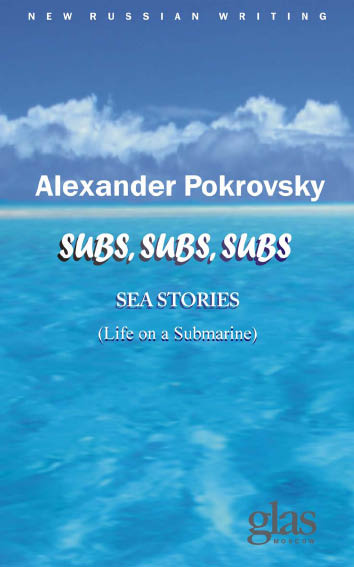
Alexander Pokrovsky
SUBS, SUBS, SUBS
SEA STORIES
(Life on a Submarine)
Translated by Noah Birksted-Breen
and Tony Perry
GLAS New Russian Writing
www.glas.msk.su
World Distribution
CENTRAL BOOKS
orders@centralbooks.com
www.centralbooks.com
Sales & Marketing
INPRESS Ltd.
Tel: +44 (0) 191 2308104
www.inpressbooks.co.uk
Within Russia
Jupiter-Impex
www.jupiterbooks.ru
ebook ISBN 978-5-7172-0118-6
SUBS, SUBS, SUBS
SEA STORIES
Any undertaking in the navy goes in four stages:
First terror;
Then error;
Third punishing the innocent;
Fourth rewarding the non-participants.
What did you see in the navy?
The neck of the man in front of me.
And what were you doing the whole time?
Side-stepping problems.
Biography owes to impressions. Impressions are bestowed on us by Fate. How it happens isn't so important. The important thing is that you never know what Fate is going to toss your way.
If somebody had told me in my adolescence that I would one day be serving on submarines, I would have laughed in their face. I would have laughed with both lungs. But that's exactly the way Fate arranged things, grabbing me by my stiff-collared education and dragging me on a tortuous path toward a life underwater.
And to ensure that the impressions I received along the way were as full-bodied as possible, Fate sent me first to the Naval Academy where I would spend five years in the Chemistry Department gaining impressions.
In the chemical department we were trained to become military chemists. And yet my deepest impressions of this period didn't come from chemistry at all. For me the most indelible impressions came from our mess hall, with its carts and trays, bowls and plates, cooks and pantries, showers and locker rooms and waitresses... and with them the inevitable behind-the-scenes peeping in search of food for our impure thoughts.
And of course, the countless rows of mess tables with aluminium pots arranged at an even pace: four cadets to a pot.
When everybody was seated at the tables, someone would start divvying up, in other words, ladling the gravy from the pot onto the plates, and everybody else would do their best to look disinterested, all the while watching to make sure the server wasn't spooning out the meat for himself. Meat was a commodity that was rationed conscientiously and fairly. Everybody remembered who'd eaten it the last time out. Never mind that it was more reminiscent of an over-boiled dishrag. We didn't care about that. The only thing we cared about was the simple fact that there was meat to be eaten... or that there wasn't.
Meat at the mess hall came from the country's frozen stocks, and when we were on kitchen duty we could make out the year it was processed by the faded blue stamp on the lid, and if the date coincided with the year we were born we announced that we were eating an old childhood friend.
And we ate it with vigour. We ate because we were hungry.
During our meals music played in the background; this helped to stimulate our digestive juices.
When going to the mess hall, we proceeded in formation, heads high, in perfect step and spirits, and reminded each other that our service had already begun, that the time spent here would be counted toward our pensions. In front of the mess hall were buckets of chlorine resting on wooden stools. Without breaking stride we would dunk our hands into the buckets. And for a long time afterwards, the smell of chlorine evoked a complex emotion suggesting both mess hall and communal head.
Another impression that has stayed with me is how we used to eat condensed milk. In those days the country had a lot of condensed milk and so we did our part to eat it: we'd buy a can, make two holes in the top, and then putting our trembling lips to one of the holes, knock it back with a mighty sucking action that brought a burst of sweet milk in our mouths. And at that moment the only thing we wanted was for it to last forever.
Drinking a can of condensed milk requires a certain physical intimacy. But if for some reason the relationship didn't work out, it was considered a nice gesture to save the last swallow for a friend.
Only one day a month cadet's payday were we able to eat to our heart's content. But then we ate as if there would be no tomorrow: condensed milk by the can, sausages by the meter, and beer by the gallon in special firefighter's buckets that enabled us to sneak it in through the fence. In our junior years we smuggled beer in at night; in our senior years, by day. And during exams we carried it into the classrooms right through the parade grounds.
Another thing that I used to do was to lie in the Infirmary. I liked lying in the Infirmary because that was the only place where you could get a good night's sleep, and getting a good night's sleep was something that I hadn't done since I was seventeen years old, specifically, since my delicate ears first recoiled at the command "Outta your racks, squirrels!!!"
In the Infirmary we were fed the same organic substances as in the mess hall, the only consolation being that you always got an extra portion.
But nobody not even the heavily medicated would eat bigus.
Bigus was a special dish designed in defiance of all humanitarian and gastrointestinal norms consisting of potatoes boiled with sauerkraut and seasoned with liquefied animal fat and tiny pieces of pork lard.
After poking my fork around in some bigus, I would walk outside into the corridor between hospital wards and slumping against the wall call out gutturally:
"Nurse... nu-u-u-rse..."
"What's the matter, son?" a nurse would jump out.
"Thanks a lot, nurse," I would say gravely and walk back into the ward.
Artistry! That's what future officers should be taught. Otherwise, how could they expect to stand in front of a formation of subordinates, each of whom is looking with wide eyes and yearning, just yearning, for some of that artistry to wear off. Sure it's important for subordinates that you give a command, but it's every bit as important how you give it. It's important for them how you arrange your face while giving it, how you hold your arms, and the positioning of your legs. It's important how much of your soul you put in a "Right face!" and how much compassion you convey in your "Atten-tion!"
For some reason it's assumed that if a person can't do anything else in this world then he is qualified to teach other people.
How many times I've been instructed while in formation, and how many times I've seen the same picture: turns out, it's enough to shout, "Arms up! Legs out! I can't hear your feet! Petrov! Dammit-to-hell...!" and voil: you are a teacher.
And then you see him. Your new company commander. His face, strangely enough, shows signs of civility. His eyes say that he has just returned from the fleet, that there's not a damn thing he's afraid of, that he's done his time, and that he's not one to suck up to the system like a lackey to his master.
"I'm tired of all this formal education," he says, and from that moment on you begin to study his speech, his face, his walk, the way he carries himself.
In time he taught us what you won't find in any textbook, what you can't be handed upon graduation, what you can learn only when it has coursed through you.
He taught us life.
NORTH
My after-graduation leave came and went like a stranger's face in a window, and a month later I was flying north to receive my assignment, inspired, impeccably-trained, and happier than is otherwise advisable.
Font size:
Interval:
Bookmark:
Similar books «Subs, Subs, Subs ... Sea Stories: Life on a submarine»
Look at similar books to Subs, Subs, Subs ... Sea Stories: Life on a submarine. We have selected literature similar in name and meaning in the hope of providing readers with more options to find new, interesting, not yet read works.
Discussion, reviews of the book Subs, Subs, Subs ... Sea Stories: Life on a submarine and just readers' own opinions. Leave your comments, write what you think about the work, its meaning or the main characters. Specify what exactly you liked and what you didn't like, and why you think so.


